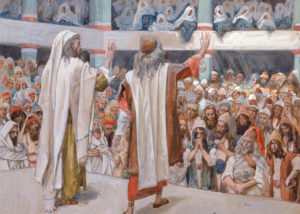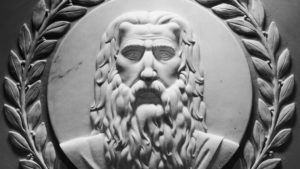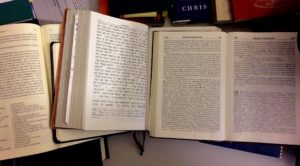FEATURED CONTENT
Imago Dei as Divine Kinship
Imago Dei implies that humans are God’s kin—specifically, His children. Israel embodied this status in the law, which has implications for bearing God’s image today.
The People-Forming Passover in Exodus
The Passover in Exodus, before the Israelites’ departure from Egypt, played a role in forming the Jewish people and nation.
Empiricism vs. Rationalism in the Hebrew Bible? Some Thoughts about Ancient Foxes and Hedgehogs
‘The fox knows many things but the hedgehog one important thing” (πόλλ’ οἶδ’ ἀλώπηξ, ἀλλ’ ἐχῖνος ἓν µέγα). Taking up…
Is God ‘Perfect Being’?
Is God perfect? There are a number of reasons to question whether this longstanding conception of God’s nature is an appropriate basis for religious belief.
The Meaning of Life in Ecclesiastes
This article determines how Ecclesiastes addressed meaningfulness by drawing on a threefold scheme of definitions for life’s meaning.
A Hebraic Metaphysic of Time in the Bible: Whose Time? Which Eternity?
Did God create time? To answer the question, and to determine what time in the Bible means, it would probably…
A Biblical Alternative to Greek Political Philosophy
Since freedom from slavery or domination and material prosperity express central goals of the Torah, liberal democracy can fill an…
Second-Order Thinking in the Hebrew Bible
This article suggests that, before Greek philosophy, Biblical Hebrew as religious language presupposed an intricate variety of transposed second-order thinking.
Biblical Theology: Tracing Philosophy across Biblical Texts
If the bibilcal texts are philosophical, how do we discern the structures of Hebraic abstract thought? Dr. Dru Johnson discusses the history of this problem and his methodology for working with biblical texts on the topic of epistemology.








